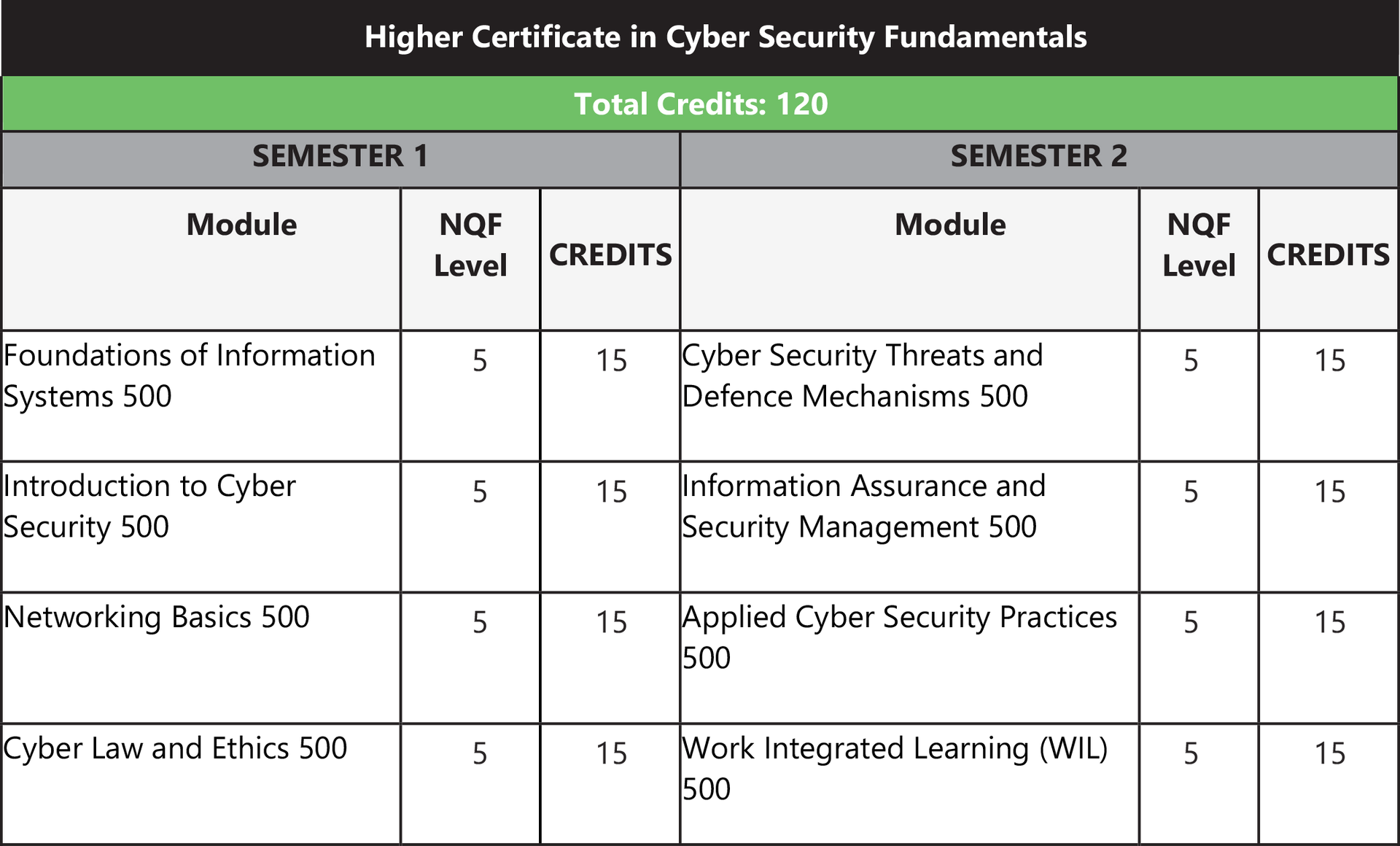NQF Level:
Credits:
Minimum Duration:
Faculty:
Department:
Accreditation Authority:
Why Choose This Qualification?
Admission Requirements.
- National Senior Certificate (NSC): Endorsed for admission to Higher Certificate, Diploma, or Degree programmes.
- National Certificate Vocational (NCV): NQF Level 4.
- Recognition of Prior Learning (RPL): Available to recognize your previous learning.
Qualification Structure.
Semester 1:
- Foundations of Information Systems (15 Credits)
- Introduction to Cyber Security (15 Credits)
- Networking Basics (15 Credits)
- Cyber Law and Ethics (15 Credits)
Semester 2:
- Cyber Security Threats and Defence Mechanisms (15 Credits)
- Information Assurance and Security Management (15 Credits)
- Applied Cyber Security Practices (15 Credits)
- Work Integrated Learning (WIL) (15 Credits)
Learning Outcomes.
- Understand the principles of information systems, networking, and cybersecurity.
- Use tools and methodologies to detect, prevent, and mitigate cybersecurity threats.
- Apply legal, ethical, and regulatory standards in cybersecurity practices.
- Develop strategies to manage and mitigate risks in information security.
- Collaborate effectively to design and implement cybersecurity solutions.
- Continuously adapt to emerging technologies and evolving cybersecurity landscapes.
International Comparability.
- Northern Virginia Community College (USA): Practical labs and certification prep with pathways to bachelor’s programmes.
- Edinburgh College (Scotland): Balanced theoretical and practical cybersecurity training.
- AIFT’s programme condenses global best practices into a one-year intensive course, offering robust training and clear articulation pathways to further studies or professional roles.
Qualification Modes of Delivery and Support.
- Contact Learning: In-person engagement with industry experts.
- Blended Learning: A mix of interactive online and face-to-face sessions.
- Distance Learning: Study anytime, anywhere with access to AIFT’s Moodle LMS.
Career Opportunities.
- Cyber Security Analyst
- Network Security Administrator
- Information Security Officer
- SOC Analyst
- Vulnerability Assessor
- Penetration Tester
- Forensic Computer Analyst
Articulation Options.
- Diploma in Cyber Security (NQF Level 6)
- Bachelor of Science in Cyber Security (NQF Level 7)
- Bachelor of Information Systems (NQF Level 7)
Diagonal Articulation:
- Occupational Certificates in Cybersecurity or related fields (NQF Levels 6 and 7)
Ensure Compliance, Empower Financial Accuracy.
With the Occupational Certificate in Tax Technology, you’re not just earning a qualification—you’re stepping into a crucial role in maintaining tax compliance and supporting financial accuracy. Gain the expertise to manage tax calculations, ensure VAT and payroll compliance, and navigate complex tax regulations with confidence.
Don’t wait to become an essential part of the financial sector.
Enroll today and build a career where you secure financial integrity and guide clients with precision!





